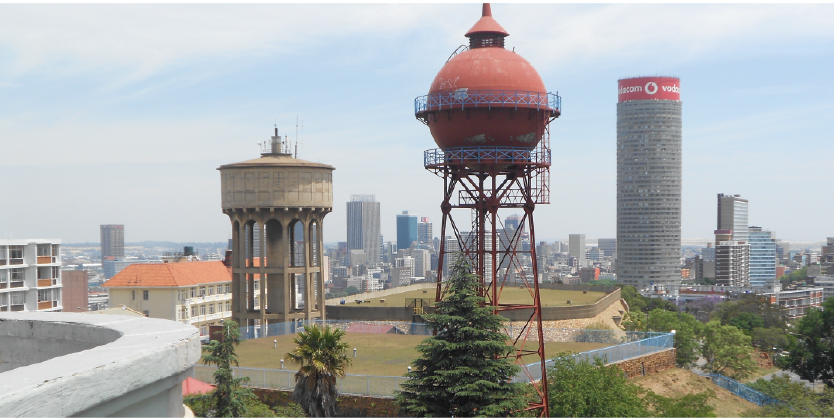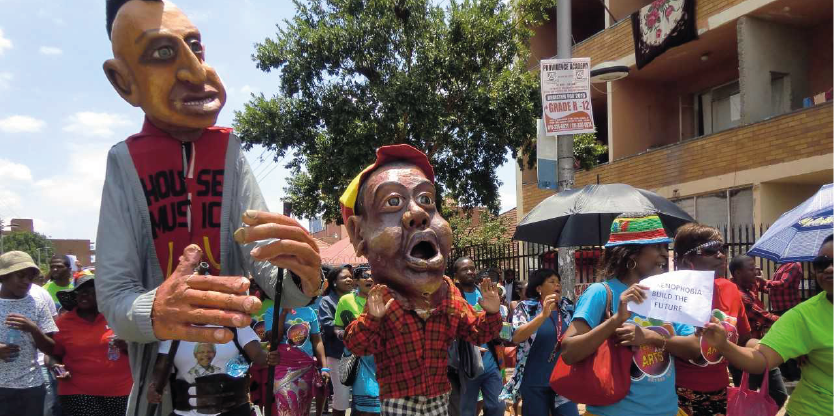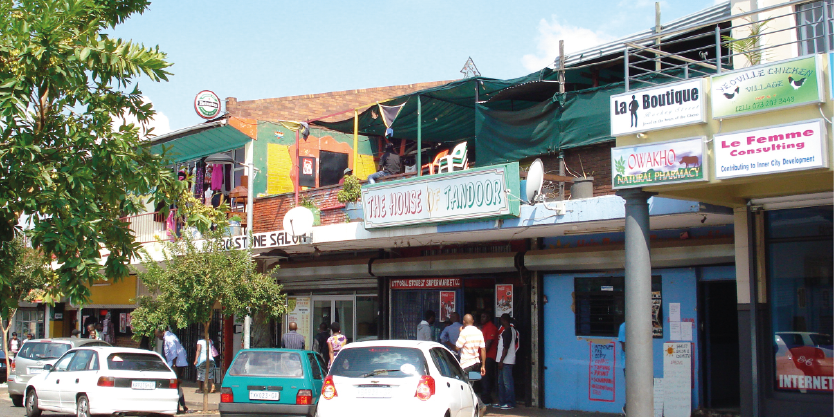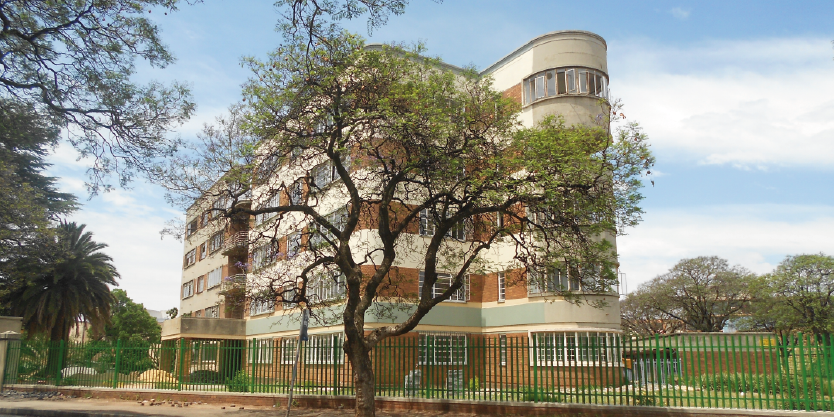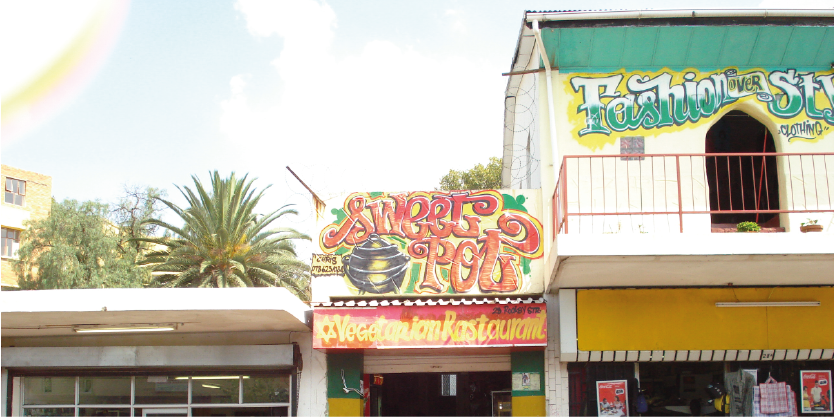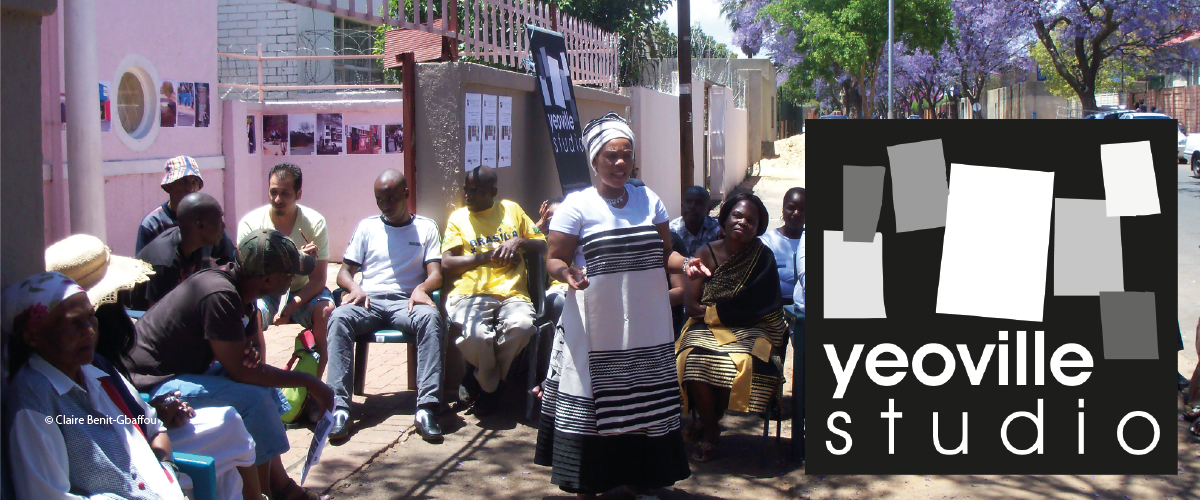
EVENTS & OUTREACH
Yeoville Studio was centrally about communicating, circulating and debating research results with different audiences.
This involved an important work of translation - framing research results in different formats, ranging from the students' reports that generally required some editing before being made public; academic productions in different forms (from a collective research report consolidating accumulated knowledge, mixing students and staffs research results and expertise; to academic presentations in varoius settings, and published papers); community outputs requiring a process of selection, rephrasing, and often a diversification of medium (newsletter, posters, oral presentation, scale models, interactive workshops). This work of translation was partly done by the students themselves - some courses requiring that a "community output" be produced from and on top of a research report; but in most cases by the course facilitator and the Yeoville Studio director. It did create significant extra work for students and staff - but was incredibly productive as a way to interrogate knowledge and its circulation.
It also involved a politics of presence - to continuously and consistently explain what the Studio was and could be, what it did and what it could not do, what it produced and how its production could be used and debated by various local communities. This politics of presence - in weekly meetings, in the public space of the library or the local newsletter, in active participation in festive events in Yeoville public space, and even eventually as a stakeholder in a local negociation process, also had a cost - and could not have been done without the financial support of Wits, the French Institute of South Africa,a dn the Goethe Institut. It had strong time implications, requiring full dedication of Yeoville Studio members to the Studio, risking a degree of burn out - hence the short duration of the initiative (two full years). It made the Studio understand acutely the human cost local activists have to play, when trying to change their neighborhoods, and inspired a better understanding of local activists and leaders, whose thirst for power and individual ambition is often condoned, whilst the sacrifices and dedication activism requires are often underplayed.
This section is divided into four types of initiatives - interesecting but of different nature: Embarking Students, Community Workshops, Public Events and Academic Events.
Embarking Wits students
The Studio needed to include, interest and embark Wits students into the process - from first years to PHDs, in different degrees and at different levels. It required support, coordination, outreach and pedagogic innovation to mobilise the whole School of Architecture and Planning for two years, building on what the others did, complementing without repeating, deepening without exhausting, contributing to the four identified themes of the Studio, going beyong the classroom to project students work in the public realm.
Wits School Talks
Fassler Gallery Exhibition
Yeoville Studio Newsletter
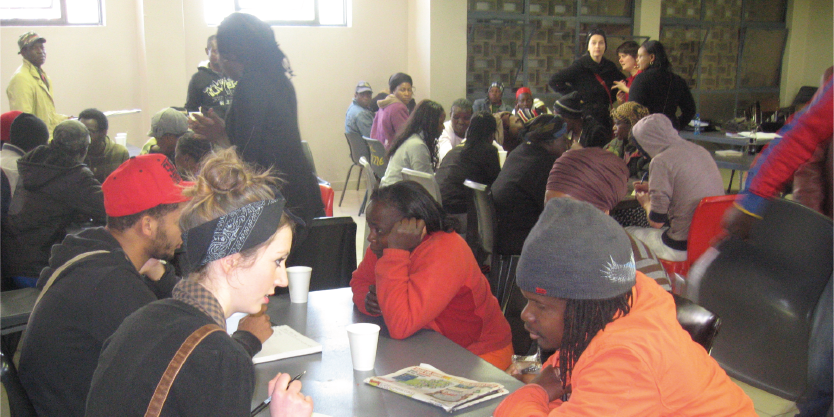
Yeoville Studio in the classroom
Community workshops
Yeoville Studio organised a diversity of workshops, involving different groups, from a few participants to a specific activity, to a street or a locla organisation, to the broader Yeoville public and beyond. Some of these workshops primarily focused on co-producing knowledge; some were around joint decision-making; some framed research support to mobilisation and advocacy. This latter aspect has continued at CUBES after the official termination of the Studio, in the fields of housing and trading in particular.
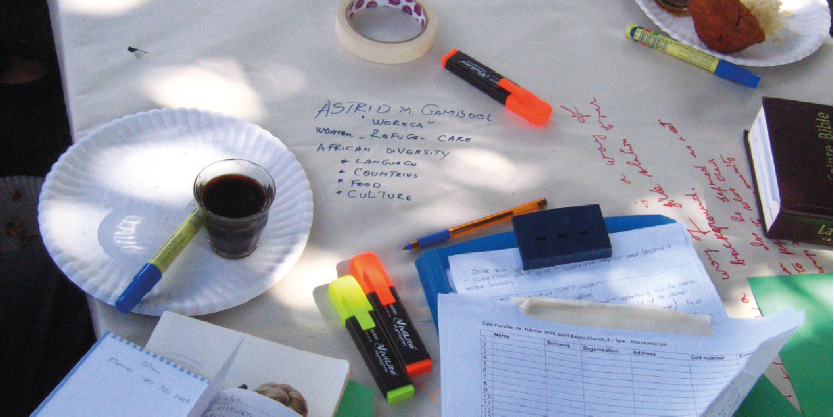
Café Yeoville
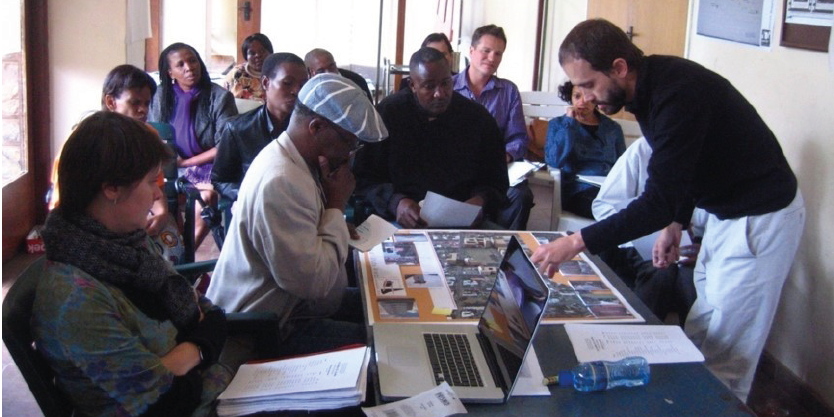
Accessible City Studio: Redesigning public places
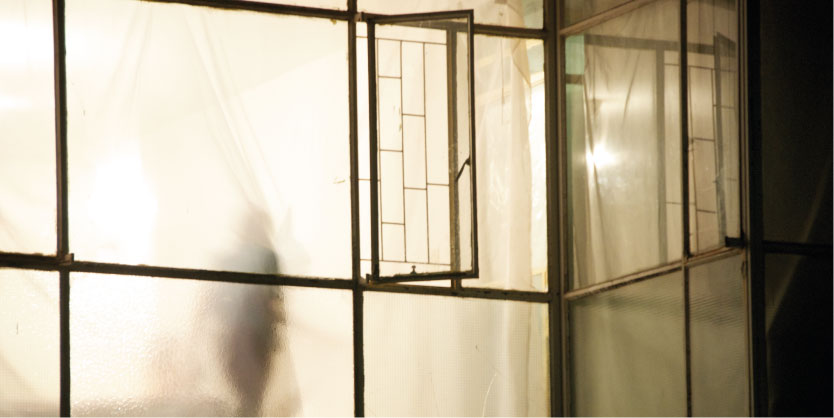
My place in Yeoville
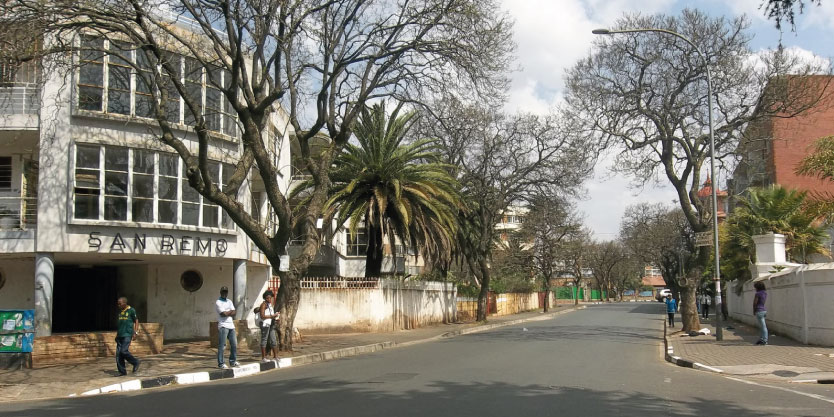
Natal/Saunders street portrait
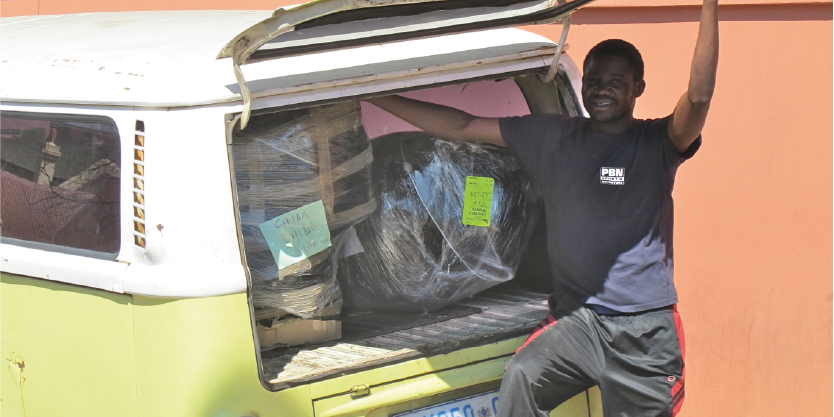
Arriving in Yeoville
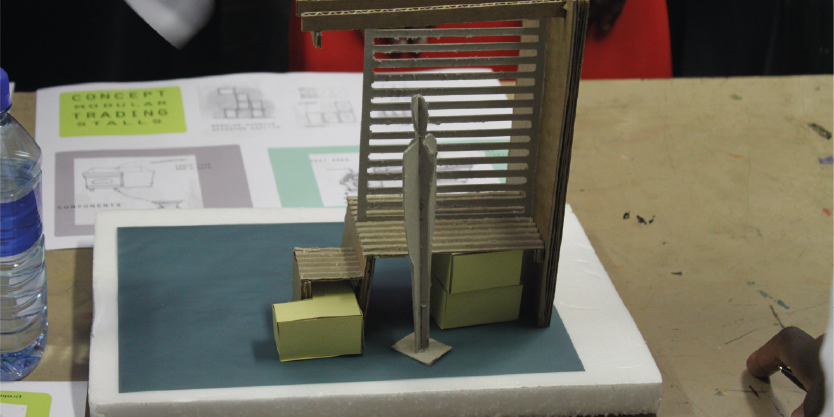
Designing street trading stalls
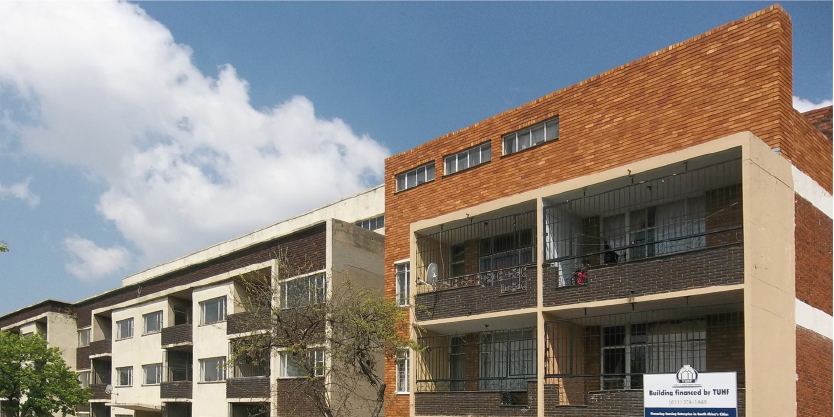
Housing research and policy

Yeoville Studio in the Yeoville Trading Task Team
Public events
Yeoville Studio attempted to participate in Yeoville community life by a politics of presence, presentation and report back throughout the two years of its existence. The most focused efforts were the organisation of exhibitions in Yeoville, showcasing the Studio's work in interactive ways; but there was also a permanent, more ordinary presence in regular public meetings, in the library or in the local newsletter, where it was crucial to explain what the Studio was, what it was doing or had done, what it could or could not do - in interaction with interested Yeoville residents.
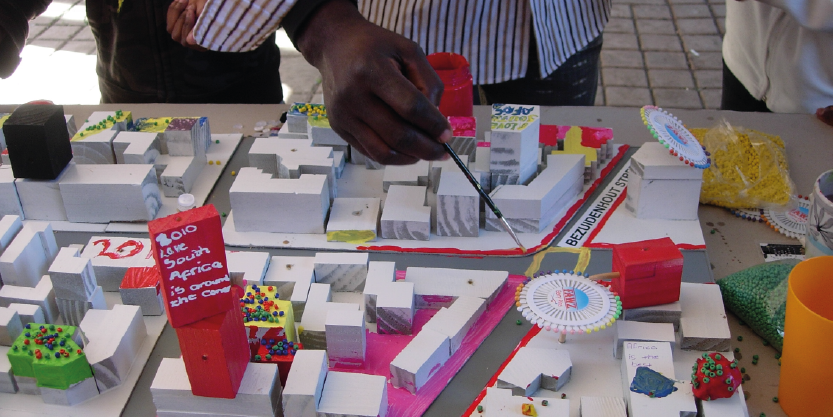
2010 Africa Day in Yeoville
2010 Yeoville Stories exhibition
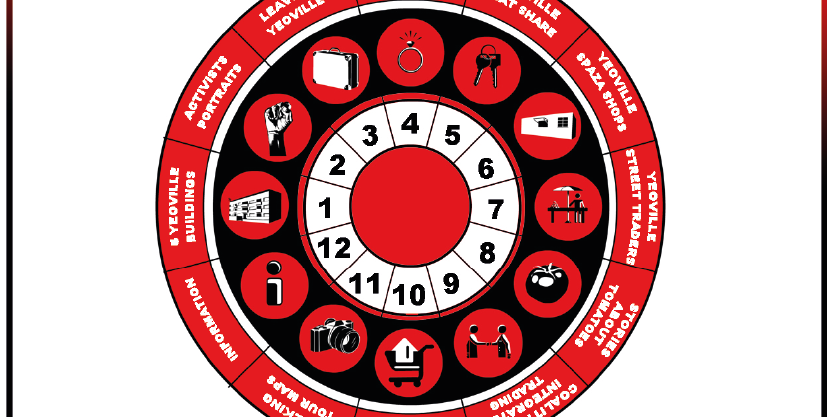
2011 Yeoville Studio finale
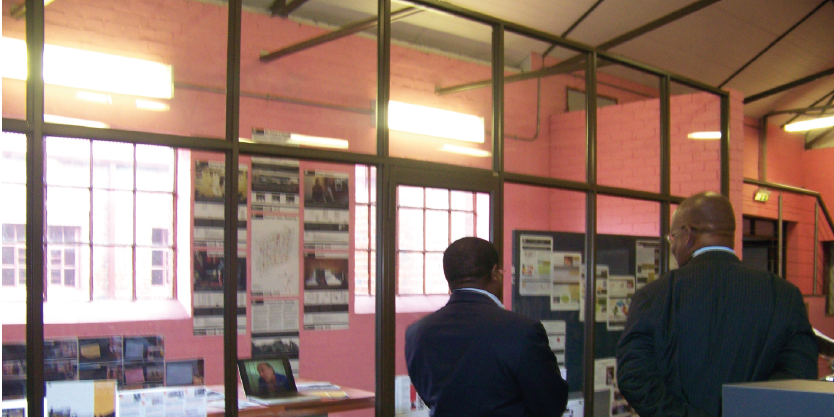
Yeoville Studio in Yeoville community life
Academic events
Yeoville Studio academics, senior and junior, developed and formalised reflections on and from the Studio in order to contribute to academic knowledge and debates. They did so in a variety of platforms - from informal seminars to national conferences and international events, presenting their thoughts beyond Yeoville, under several themes ranging from Urban Studies, toRepresentation, Urban Memory, and the Politics of Community Engagement.
The City

Representation
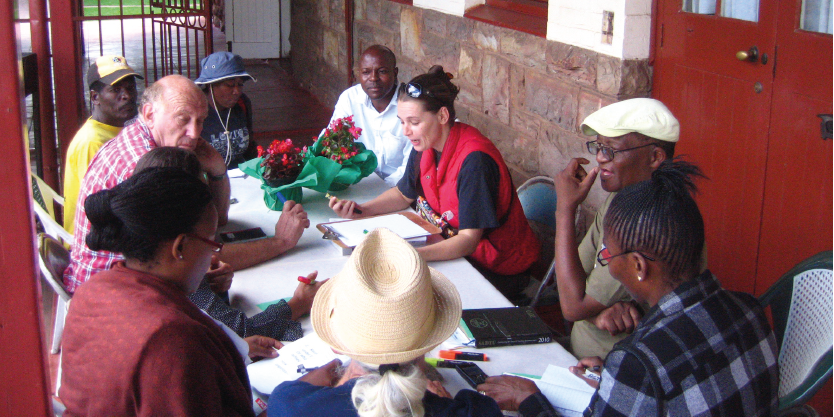
Community Engagement
